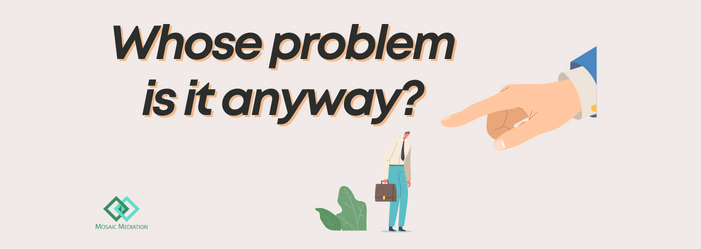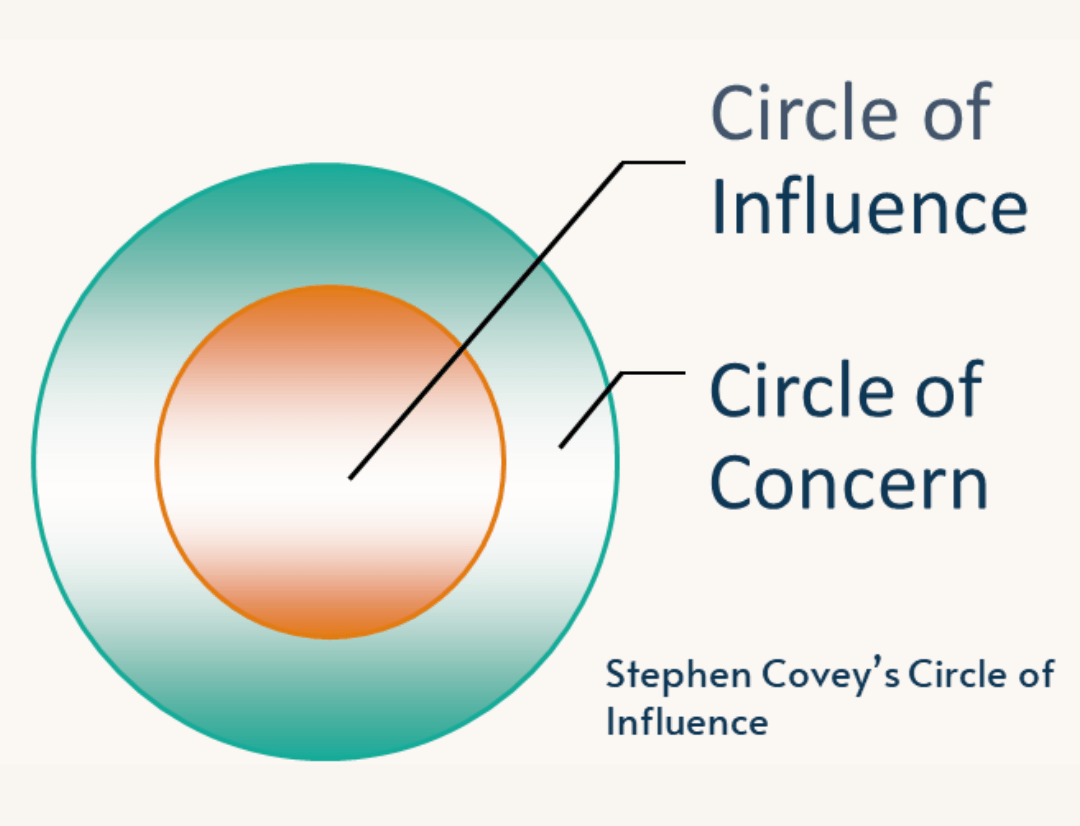Whose Problem is it Anyway?
When they don't want to resolve things, but you do...

It’s an unnerving feeling, isn’t it? Being out of control.
Tim Gunn famously repeats in the TV show, ‘Project Runway’, “Make it work!”. When you are dealing with inanimate objects, that is possible. However, when you are trying to make a relationship ‘work’, you are dealing with human beings – notably averse to being told what to do. And, we can’t control what other human beings do, can we?
The great Stephen R. Covey, in his book
‘The 7 Habits of Highly Effective People’
defined the theory of having the
‘circle of influence’ and the ‘circle of concern’. The former relates to those things that you can affect and impact – essentially those things which are under your control. The latter circle relates to those things which you are concerned about but that you cannot control.

My take on his theory is that it is pointless and debilitating to focus on those things which are in the circle of concern. However, when we focus on what we can do about those things in our circle of influence, we can feel empowered. Also, there may be occasions when those actions we take regarding the circle of influence may even have a knock-on effect on those things of which we felt out of control.
We can’t take responsibility for what other people do. However, we all have a part to play in the development of a relationship or how pleasant (or not) an interaction might be.
I find it helpful to not use words like ‘blame’ or ‘fault’ when talking about relationships but instead to frame it as our ‘contribution’. People tend to feel a lot less defensive when asked: “What was your contribution to the current situation?” – as opposed to: “And which part of the current situation are your fault?!”
The thing with mediation – or just difficult conversations in general - is that you need all relevant people to want to engage with the process. So, what happens if they don’t want to?!
Sometimes, they need to understand a little more about what to expect or what the intention of the conversation/the other person is. However, even then, they may still not want to address things proactively.
Well, then I suggest that the focus moves away from the other person and onto you - to your ‘contribution’.
What do I ‘contribute’?
1. Our words or behaviours
Do your words encourage or inspire – or might they feel judgmental and condemning? Are your words accurate or are they an exaggeration or inaccurate? If your contribution to a conversation does not feel true, helpful, inspiring, or kind then it is possible your words will lead to a negative interaction.
Similarly, if your behaviour feels defensive, aggressive, or dismissive then this is unlikely to be a positive influence on the other person.
2. Learning new skills
“Every day is a school day!” If you think you have done all the learning you need to do about communication and other people, then you need to think again. People are unique and interesting and confusing. Communication is a skill which takes more than a lifetime to master and develop. So, what can you contribute? You can acknowledge when you need to develop a skill or increase your knowledge and by doing so for the benefit of your relationships and interactions is a true gift to yourself and others!
3. Noticing and changing unhelpful habits or thought patterns
What have you noticed about yourself? Do you notice when your thoughts are not helpful and lead you to make assumptions about other people or to react without a ‘kindness filter’? The self-awareness journey is long and necessary. But it does not need to be lonely.
Recently, alongside mediation, I have been facilitating more conflict coaching and assertiveness coaching. Why? Sometimes, it is beneficial as part of the mediation process, as they can do a couple of sessions to get a bit more clarity and confidence before the joint session. However, in a situation where they are alone in wanting to communicate effectively with the other person (or other people in general), then there is still support available for them to do that.
Conflict coaching and assertiveness coaching focus on supporting, developing, and equipping the individual so that they can take some of the control back.
They don’t have to wait until the other person is ready – if they ever feel ready – to try and improve things. They can take the brave and responsible step to determine that even if the other person does not contribute much at all, or much that is positive, towards a situation, they at least can control what they contribute towards it. And, who knows what impact that might have…?










